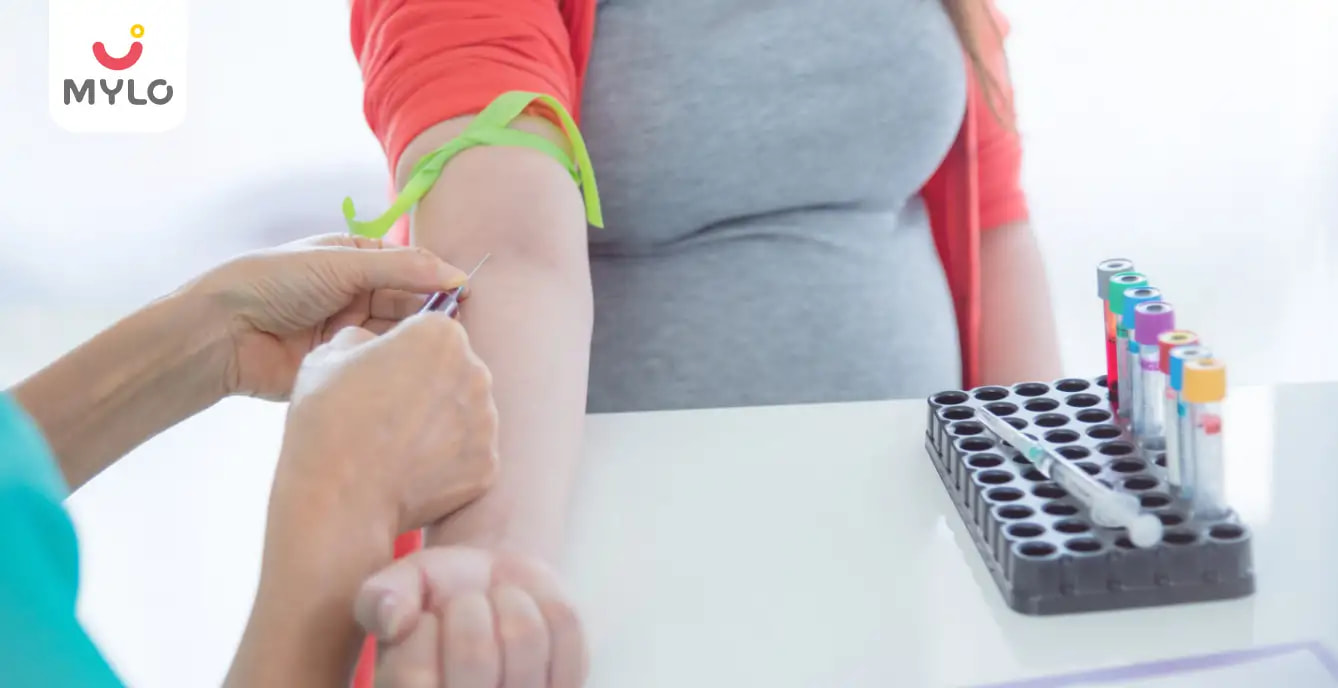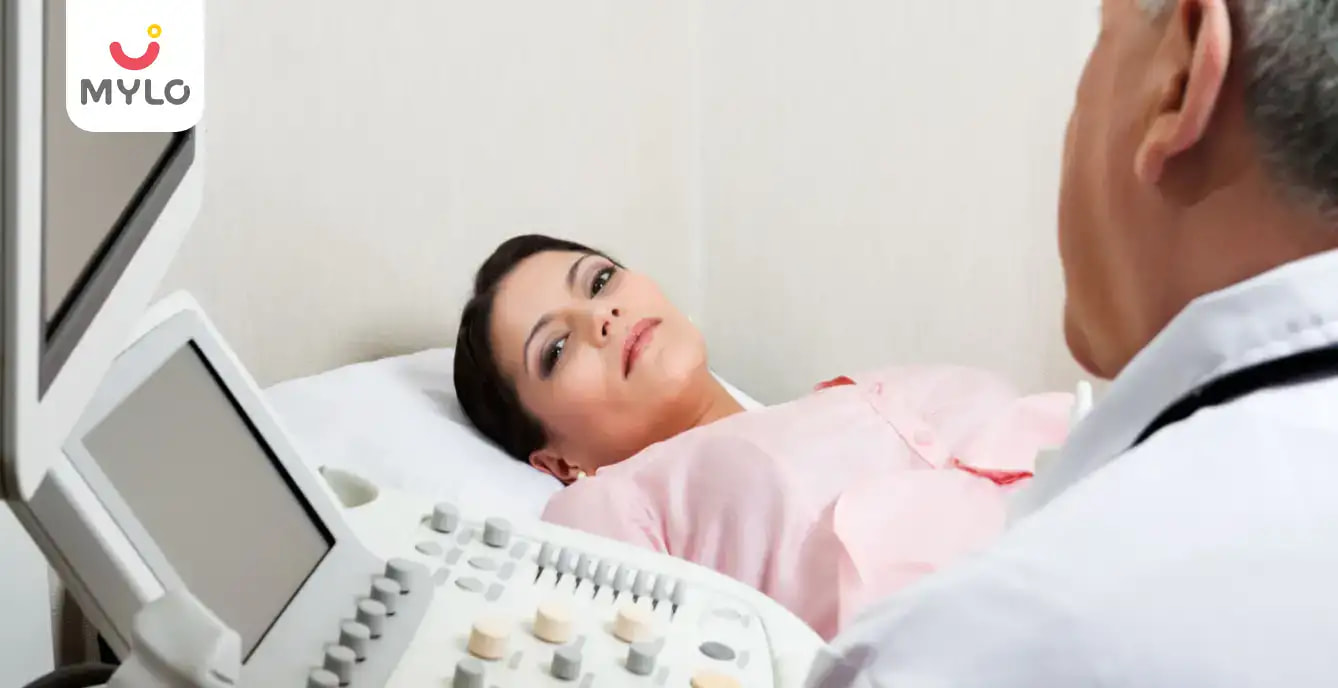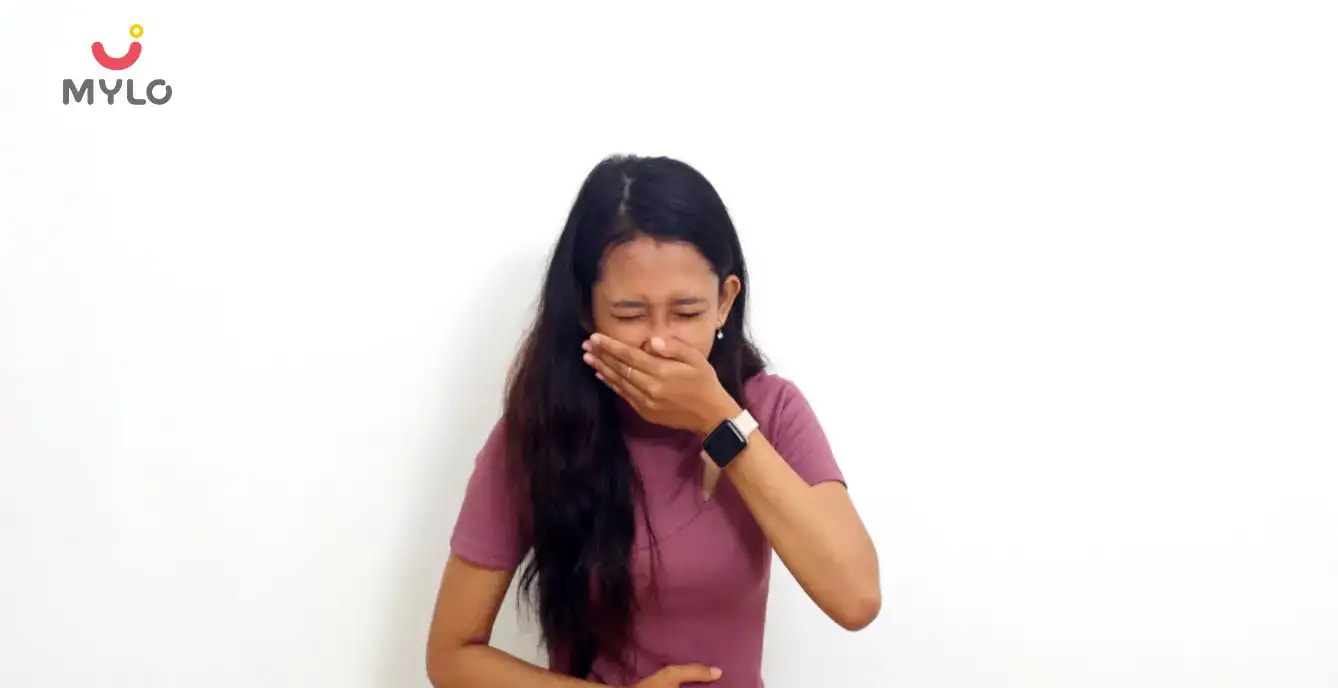Home

Food Poisoning During Pregnancy: Causes, Symptoms & Treatment
In this Article
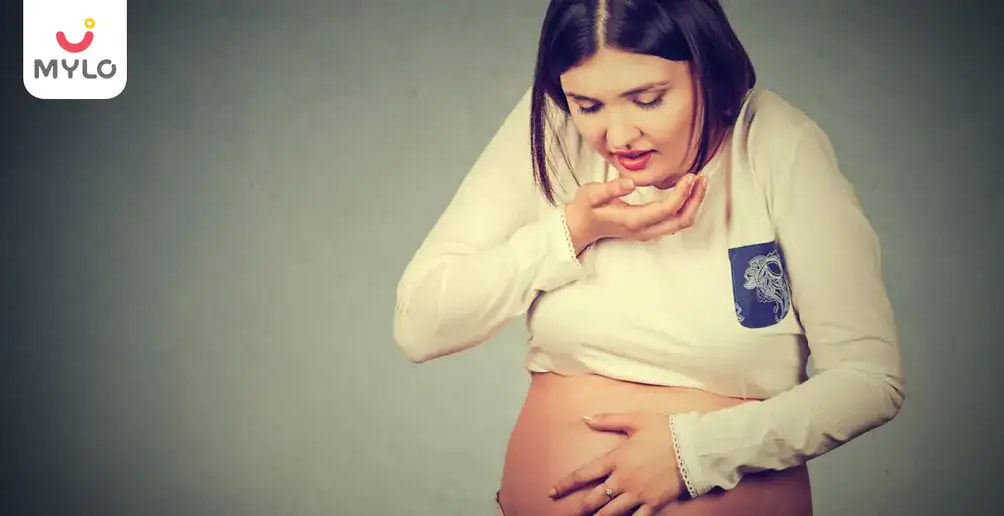
Pregnancy
Food Poisoning During Pregnancy: Causes, Symptoms & Treatment
Updated on 7 February 2023
Food poisoning usually occurs from consuming something that contains bacteria, a virus or a toxin that’s causing the body to react negatively. It is often characterized by symptoms like vomiting, nausea or diarrhea. Food poisoning is unpleasant for anyone to experience and during pregnancy, it can cause the expecting mother to feel anxious. In this article, we will discuss the causes, symptoms, implications and treatment of food poisoning during pregnancy.
How to handle food poisoning during pregnancy?
Food poisoning is dangerous for the unborn child as well as the expecting mother. It can cause serious health problems for the child and may even lead to miscarriage. You might not experience any symptoms, but the baby can have serious health conditions such as seizures, blindness, etc. Listeriosis is a particularly nasty form of food poisoning that can make both you and your baby dangerously ill. It’s recommended to stay hydrated and consult your doctor.
Causes of food poisoning in pregnancy
Expecting mothers find themselves more vulnerable to food poisoning because of the changes in their immune system, changes in metabolism and blood circulation. The reason for this is the influx of pregnancy hormones in the body. Additionally, most of the body’s energy is devoted towards growing the baby. Your immune system is weaker than usual when you are pregnant, so it is harder for your body to fight off germs that might hitch a ride on food and cause food poisoning during pregnancy.
Symptoms of food poisoning in pregnancy
Besides vomiting, nausea and diarrhea, food poisoning during pregnancy may cause the following symptoms:
-
Headache
-
Abdominal pain or discomfort
-
Fever
-
Dehydration
-
Bloody stool
With the constant changes a woman experiences during pregnancy, it can be hard to tell whether symptoms like nausea and vomiting are a result of pregnancy or food poisoning. If you’re unsure about the same, it’s best to consult your doctor.
Types of food poisoning during pregnancy
The most common types of food poisoning are norovirus, listeriosis, E. coli and salmonella, among others. If left untreated, all of these can be dangerous for the expecting mother as well as her baby. If you think a foodborne illness is responsible for your food poisoning, consult your doctor immediately.
Treatment for food poisoning in pregnancy
Food poisoning during pregnancy can cause dehydration, which if becomes severe may require hospitalization or an IV to transfer fluids. To build up your lost fluids, it’s essential to increase your water consumption. Even if you’re throwing up, keep drinking small sips of water. Keeping your fluid intake constant will help you recover from the illness.
Make sure the water you’re drinking is from a clean, purified and trusted home filter or bottled source. If you think you’re experiencing dehydration, do let your doctor know as soon as possible. Signs of dehydration include excessive thirst, dry lips, little to no urine and dizziness. It is not always possible to treat food poisoning at home. You may need medication that your doctor will prescribe to fight the problem quickly.
Pregnancy-related complications from food poisoning
Besides dehydration, food poisoning during pregnancy can also lead to other serious complications.
-
For instance, norovirus can cause malnutrition in some rare cases.
-
Listeriosis may lead to long-term neurological development problems for the baby.
-
E. coli may damage the blood vessel lining or lead to kidney failure, generally indicated by bloody stools.
-
Salmonella has the potential to cause reactive arthritis, meningitis and bacteremia.
In some extreme cases, food poisoning can even lead to miscarriage or stillbirth. As a result, it is essential for the expecting mother to be extra careful of what she eats during pregnancy.
How to prevent food poisoning during pregnancy?
Food safety is crucial during pregnancy. To avoid getting food poisoning during pregnancy, it’s important to follow all the instructions from your doctor regarding food preparation and avoiding foods that aren’t pregnancy-safe.
Here are some precautions you can take to minimise your chances of getting food poisoning during pregnancy:
-
Wash your hands with soap and water thoroughly before and after touching food.
-
Refrigerate or freeze all perishable food items.
-
Thoroughly wash fruits and vegetables before you eat or cook them.
-
Wash all utensils and food preparation surfaces after you use them. Handle foods safely each time you wash, prepare, cook and store them. Wash any kitchen tools you may use such as knives, cutting boards, and dishes to prepare raw meat, fish, or poultry before and after using them.
-
Cook food fully and at a high temperature to ensure all germs are killed.
-
Refrigerate leftovers right away and don’t eat any food that has been sitting out or has expired.
Certain foods should be off the menu for the whole term of your pregnancy. You should avoid:
-
Unpasteurized dairy products such as raw milk or soft cheese
-
Deli meat or hot dogs unless heated to 165 degrees.
-
Any form of raw or undercooked meat, poultry, seafood, or fish.
-
Smoked fish, unless it’s from a can or can be cooked.
-
Unpasteurized juice or cider and sprouts.
Frequently asked questions (FAQs)
How do I know if I have food poisoning while pregnant?
The most common symptoms of food poisoning in pregnancy include vomiting, nausea, diarrhea, abdominal pain, headache, fever and dehydration.
Can food poisoning while pregnant hurt the baby?
Yes, in some cases the bacteria, virus or toxin responsible for food poisoning may harm the baby and even result in miscarriage or stillbirth.
Pregnancy is a most vulnerable time for the expecting mother and the baby growing inside her womb. You must be extra cautious of what’s at the end of your fork when you’re pregnant to prevent illnesses like food poisoning during pregnancy.



Written by
Loveleen Gupta
A working mother with more than two decades of experience in writing for the publishing industry and digital space, Loveleen Gupta loves dabbling in creative writing also. A graduate from Miranda House, she uses her personal experiences to express herself.
Read MoreGet baby's diet chart, and growth tips

Related Articles
Related Topics
RECENTLY PUBLISHED ARTICLES
our most recent articles
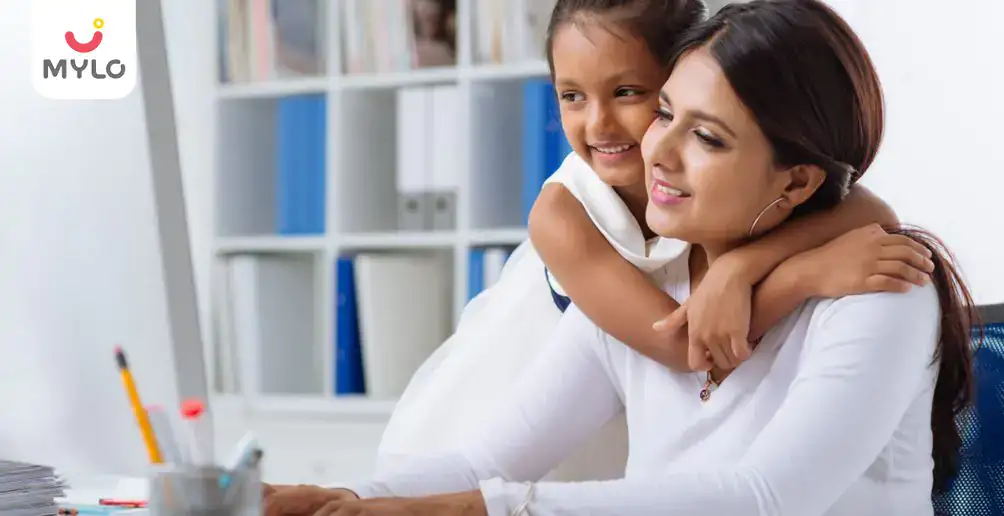
Working Parent
A Working Mom's Guide to Maintaining Balance
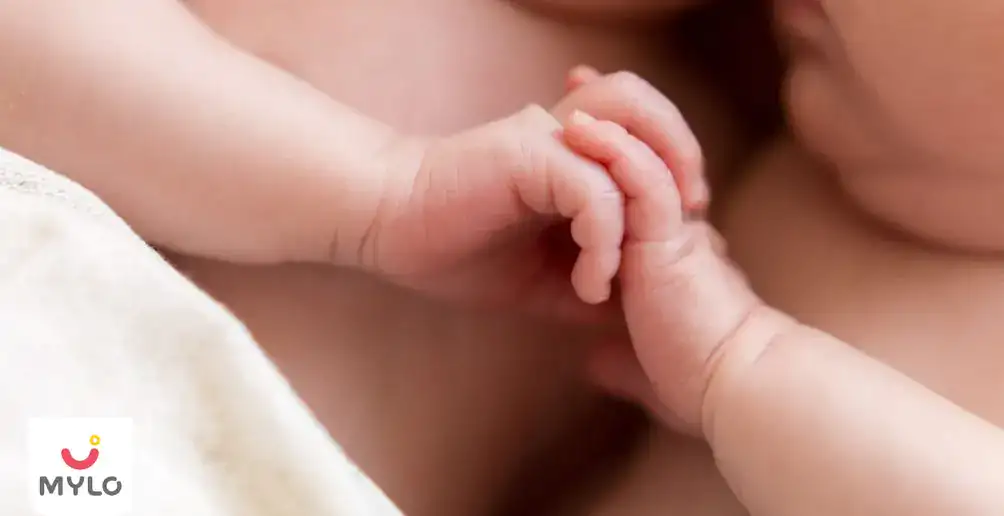
General Mother
Vanishing Twin Syndrome: Causes, Symptoms & Treatment
Premature Delivery
Oligohydramnios (Low Amniotic Fluid During Pregnancy): Causes, Symptoms & Treatment
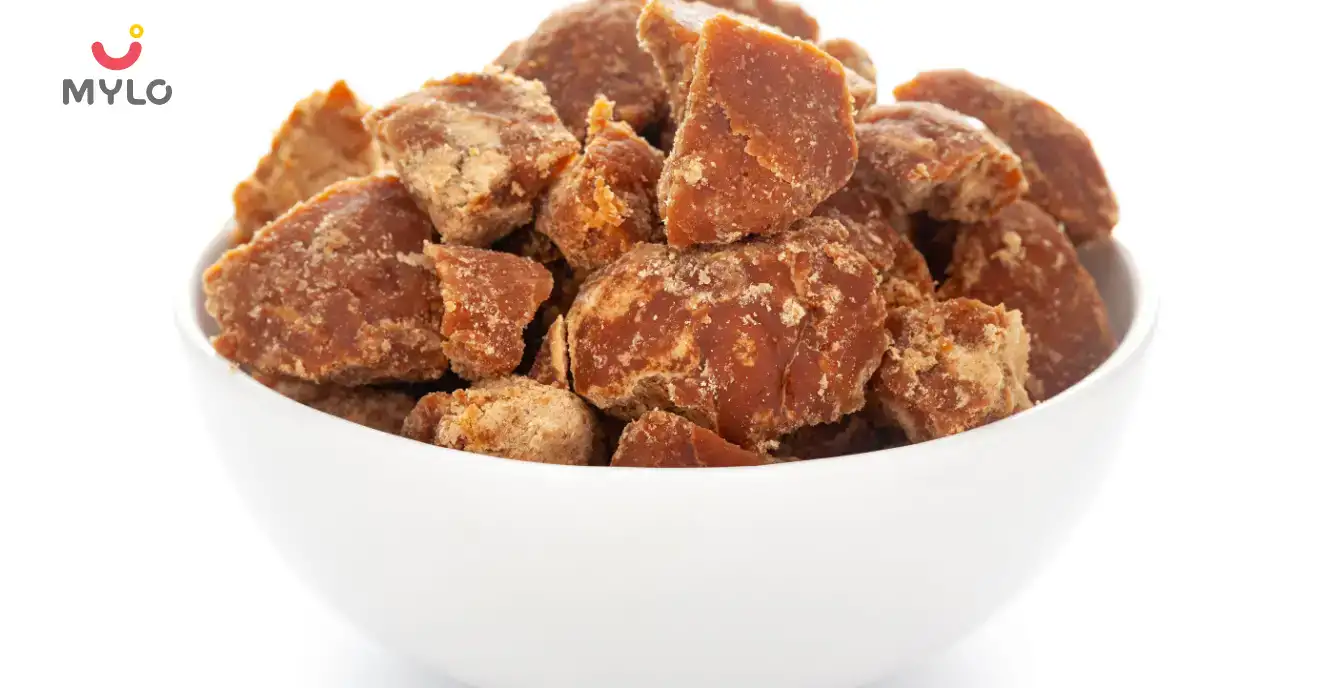
Diet & Nutrition
Jaggery in Pregnancy: Benefits & Nutritional Value
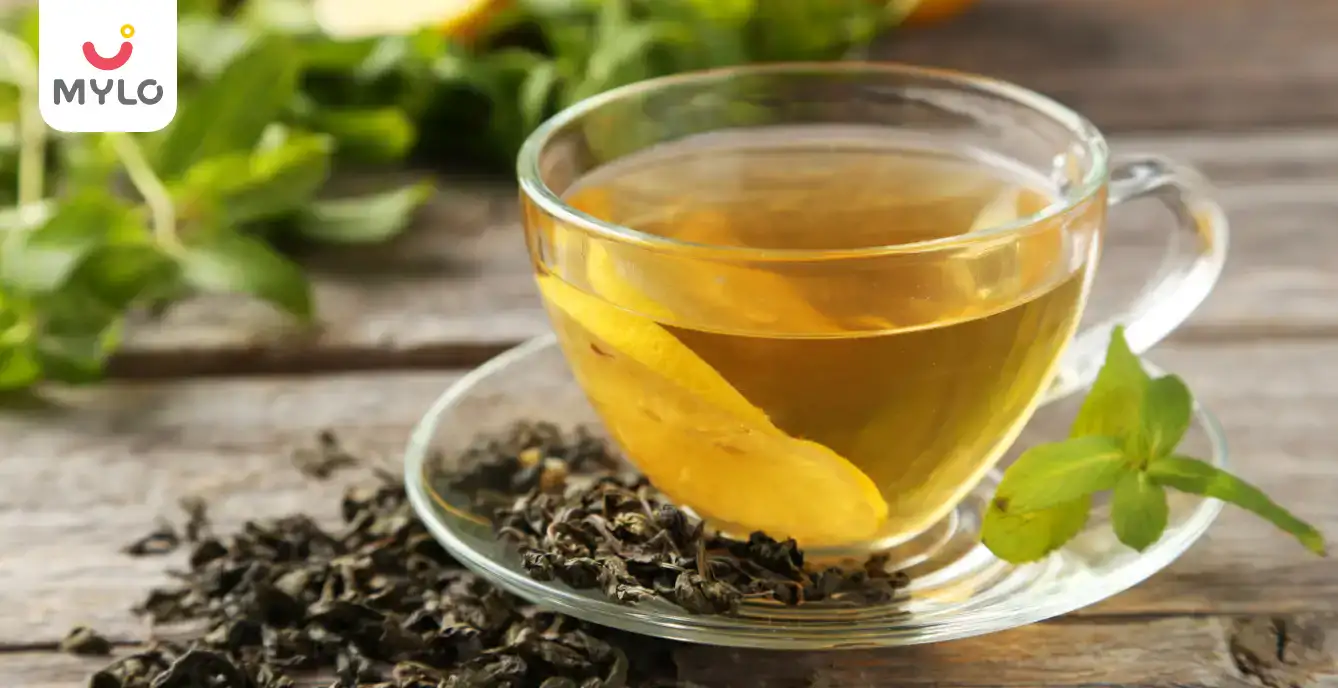
Pregnancy Precautions
Green Tea During Pregnancy: Benefits, Risks & Safety measures
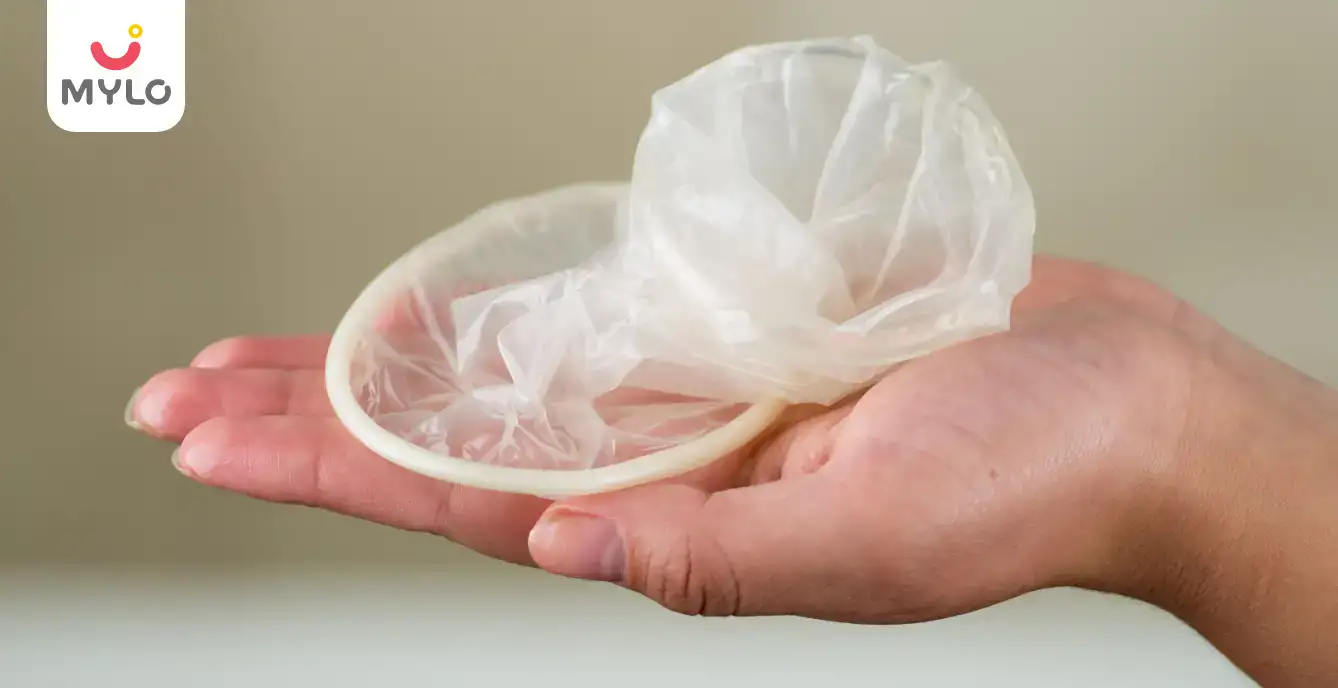
Sex Life
Where Can You Buy Female Condoms?
- Is there anything to worry about when your baby passes urine frequently? Here are some warning signs.
- The Do's and Don'ts of how to effectively handle toilet training for your child
- Top 10 Precautions you must take while Celebrating Christmas and New Year During Covid
- Episiotomy Care: Meaning, Reasons & Risks
- 7 Most Popular IVF Myths Busted
- Is It Safe to Have Sex During Pregnancy and After Delivery?
- How to Teach Your Toddler Not to Hit?
- An Expecting Mother's Guide to Vitamins & Supplements in Pregnancy
- Use of Air Conditioners & Coolers for Newborns
- Neonatal Jaundice: Causes, Symptoms & Treatment
- Depression During Pregnancy: Causes, Risks & Treatment
- Discover the 10 Best Shows on Netflix in 2023!
- Eating Spicy Food During Pregnancy: Is it Safe or Not?
- 7 Tips to Help Your Toddler Transition From Potty to Toilet


AWARDS AND RECOGNITION

Mylo wins Forbes D2C Disruptor award

Mylo wins The Economic Times Promising Brands 2022
AS SEEN IN

- Mylo Care: Effective and science-backed personal care and wellness solutions for a joyful you.
- Mylo Baby: Science-backed, gentle and effective personal care & hygiene range for your little one.
- Mylo Community: Trusted and empathetic community of 10mn+ parents and experts.
Product Categories
baby carrier | baby soap | baby wipes | stretch marks cream | baby cream | baby shampoo | baby massage oil | baby hair oil | stretch marks oil | baby body wash | baby powder | baby lotion | diaper rash cream | newborn diapers | teether | baby kajal | baby diapers | cloth diapers |



